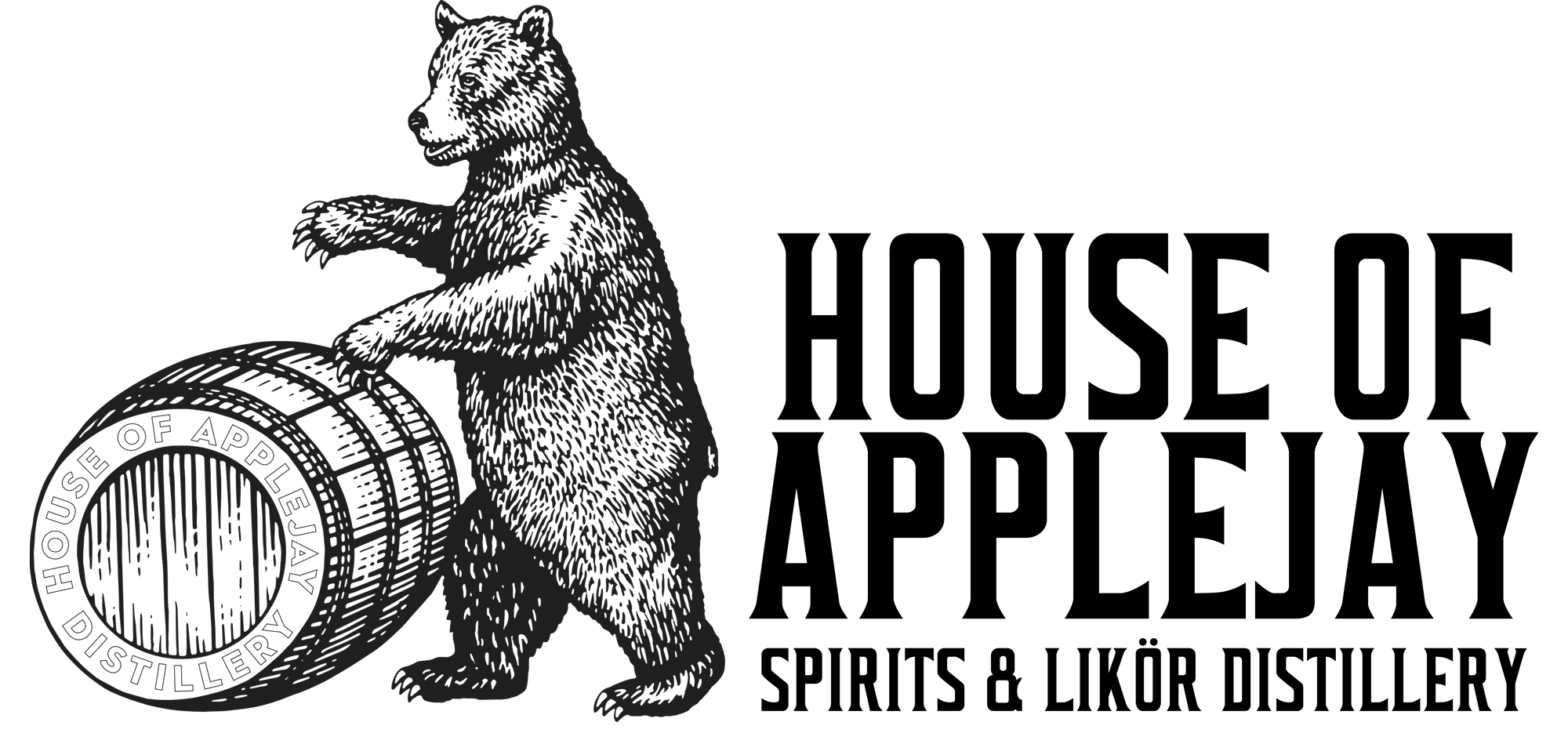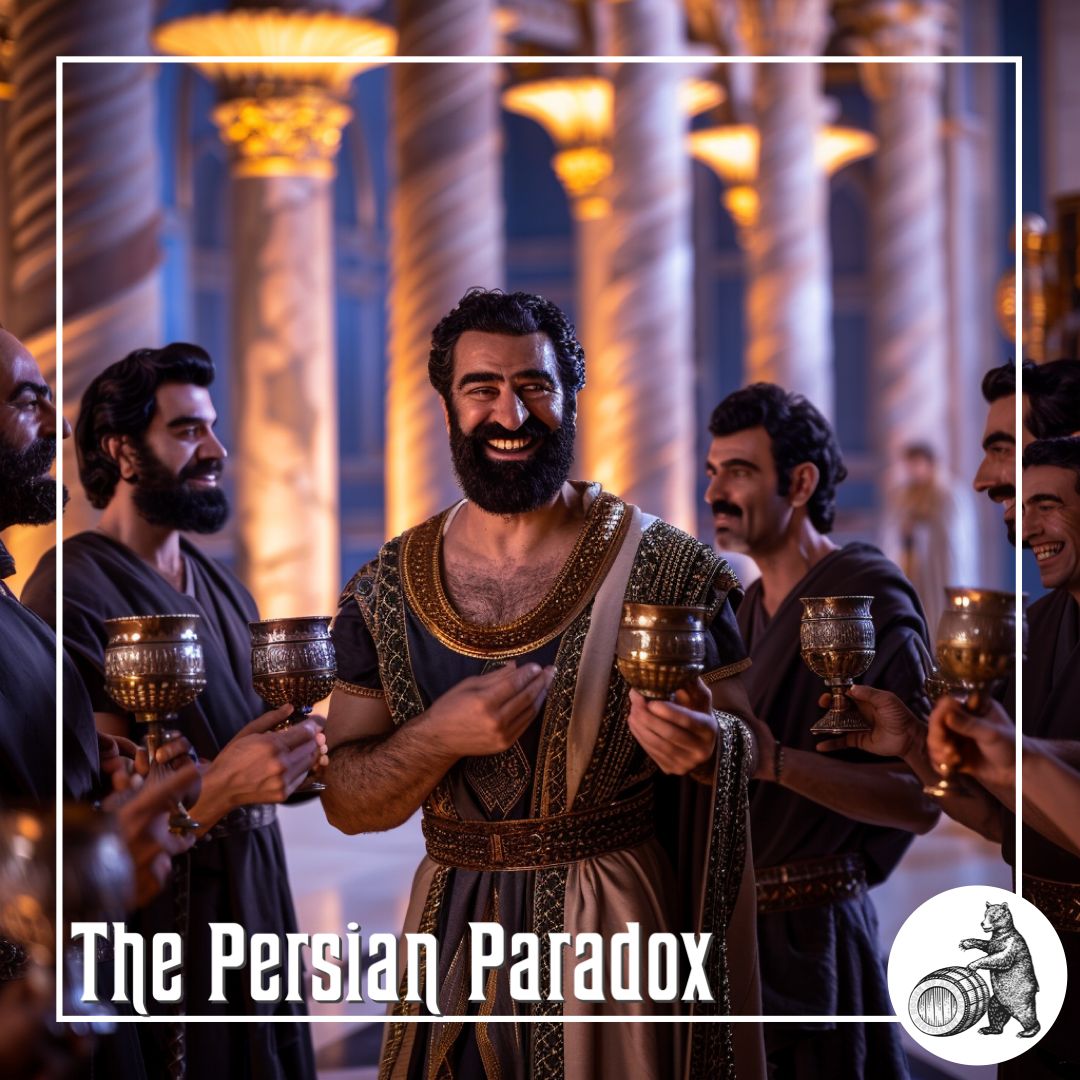The Persian Paradox
Seeking Truth in Sobriety and Revelry
Imagine a council of ancient Persian leaders, gathered around a flickering fire, deliberating the fate of an empire. The scene is serious, their brows furrowed in thought as they weigh options with clear, sober minds. But then, as the historian Herodotus tells us, the meeting adjourns—only to reconvene later with wine flowing freely, laughter in the air, and the same question on the table. Why? Because the Persians, in their wisdom or perhaps their whimsy, believed that true decisions required two perspectives: one rooted in sobriety, the other unshackled by intoxication.
Herodotus’ Tale of Two Councils
Herodotus, the Greek historian born around 484 BCE in Halicarnassus (modern-day Bodrum, Turkey) and active until roughly 425 BCE, documented this practice in his seminal work, The Histories, written circa 430–425 BCE. In Book 1, Chapter 133, he recounts: “It is also their general practice to deliberate upon affairs of weight when they are drunk; and then on the morrow, when they are sober, the decision to which they came the night before is put before them by the master of the house in which it was made; and if it is then approved of, they act on it; if not, they set it aside. Sometimes, however, they are sober at their first deliberation, but in this case they always reconsider the matter under the influence of wine.” This custom, he suggests, was a hallmark of the Achaemenid Empire (circa 550–330 BCE), the first Persian Empire founded by Cyrus the Great (r. 559–530 BCE).
This anecdote isn’t just a quirky footnote—it’s a window into alcohol’s historical role in philosophical and political deliberations. The Persians, Herodotus implies, saw intoxication as a means to strip away pretense, revealing deeper truths that sobriety might obscure. But how reliable is this account, and what does it tell us about Persia’s cultural legacy?
Fact-Checking Herodotus’ Claim
Herodotus is our sole ancient source for this specific practice, which raises questions about its accuracy. Known as the “Father of History,” he traveled widely across the Persian Empire, Egypt, and the Greek world, compiling observations in The Histories. Yet, his work blends fact with hearsay, and scholars have long debated his reliability, especially when describing foreign customs. The Persians were Greece’s perennial rivals, notably during the Greco-Persian Wars (492–449 BCE), including the famous battles of Marathon (490 BCE) and Thermopylae (480 BCE). This rivalry may have colored his portrayal, casting Persian habits as exotic or excessive to Greek eyes.
No Persian records—like the cuneiform inscriptions from Persepolis (founded 518 BCE by Darius I, r. 522–486 BCE)—directly corroborate this dual-decision method. However, archaeological evidence confirms Persia’s deep connection to wine. Excavations in northwest Iran, near Hajji Firuz Tepe, uncovered 7,000-year-old jars (circa 5400–5000 BCE) with traces of tartaric acid, suggesting some of the earliest known winemaking. By the Achaemenid period, wine was a staple, served in ornate silver and gold vessels during lavish banquets, as noted in reliefs from Persepolis and texts like the Persepolis Fortification Tablets (509–493 BCE).
Greek sources beyond Herodotus offer indirect support. Athenaeus of Naucratis (fl. circa 200 CE), in his Deipnosophistae, quotes Darius I’s tomb inscription: “I was able to drink a great deal of wine and to bear it well,” hinting at a cultural pride in wine consumption. Yet, this is centuries after Herodotus and may reflect Greek stereotypes rather than Persian reality. The concept of “in vino veritas” (in wine, truth), often linked to this story, actually stems from a Greek saying by Alcaeus (circa 620–580 BCE), later Latinized by Pliny the Elder (23–79 CE) in his Naturalis Historia.
Modern historians are split. Some, like Pierre Briant in From Cyrus to Alexander (2002), argue that Herodotus likely exaggerated a real practice—perhaps decisions made over wine at feasts were reviewed later for sobriety’s sake. Others, like Touraj Daryaee, suggest it’s a misinterpretation of social drinking, akin to modern executives bonding over drinks. The Achaemenid Empire’s success—spanning 5.5 million square kilometers at its peak under Xerxes I (r. 486–465 BCE)—suggests a governance far more disciplined.
Historical Context and Influence
The Persians’ supposed method reflects a broader cultural duality: sobriety for logic, intoxication for intuition. This resonates with Zoroastrianism, their dominant religion (codified circa 1200–1000 BCE), which emphasized balance between order (asha) and chaos (druj). Wine’s role in Persian life predates the Achaemenids; the Elamite civilization (circa 2700–539 BCE) in southwest Iran also cultivated vineyards. By 600 BCE, the Median Empire (predecessor to the Achaemenids) likely influenced Persian wine culture, as Herodotus notes their shared customs (Book 1, 135).
This custom, if accurate, stands in stark contrast to Greek conventions, where wine was typically mixed with water, and drinking it neat was deemed uncivilized—a perspective Herodotus might have imposed on his depiction of Persia. However, similar traditions appear elsewhere. Tacitus (circa 56–120 CE), in his work Germania, describes Germanic tribes debating during feasts, convinced that intoxication thwarted dishonesty. Likewise, the Babylonian Talmud (circa 500 CE) notes, “wine enters, secrets exit,” hinting at a broader cultural pattern. Even the Scythians, nomadic neighbors of the Persians, embraced unrestrained drinking, as explored in this fascinating look at their customs, further illustrating how alcohol shaped diverse societies.
Persia’s Wine-Loving Legacy
Persia’s sophistication shines through its wine legacy. The city of Shiraz, a winemaking hub by the Sasanian period (224–651 CE), gave its name to a grape variety (though its link to modern Syrah is debated). The empire’s infrastructure—royal roads spanning 2,500 kilometers by 500 BCE—facilitated trade, including wine, from India to Egypt. This sophistication persisted until the Islamic conquest (651 CE), after which alcohol bans emerged, though poets like Hafez (1315–1390 CE) later celebrated wine metaphorically.
Herodotus’ story, whether rooted in reality or embellished for effect, enhances Persia’s reputation as a civilization that reveled in life’s intricacies. Spanning the era from Cyrus the Great’s triumph over Babylon in 539 BCE to Alexander the Great’s destruction of Persepolis in 330 BCE, the Achaemenid Empire governed with a unique fusion of openness and ingenuity. This supposed practice of dual deliberation—quirky yet thought-provoking—prompts us to consider: does the essence of truth reside in the dynamic balance between disciplined thought and liberated spirit?
The Distilling Culture
BLOG
Embark on a global journey, and you’ll find that cultures possess tales that harken back to their ancient beginnings of distillation, brewing, and winemaking.
info@houseofapplejay.com
67 Fowler St, Bldg B, East Ellijay, GA 30540

